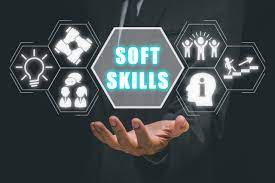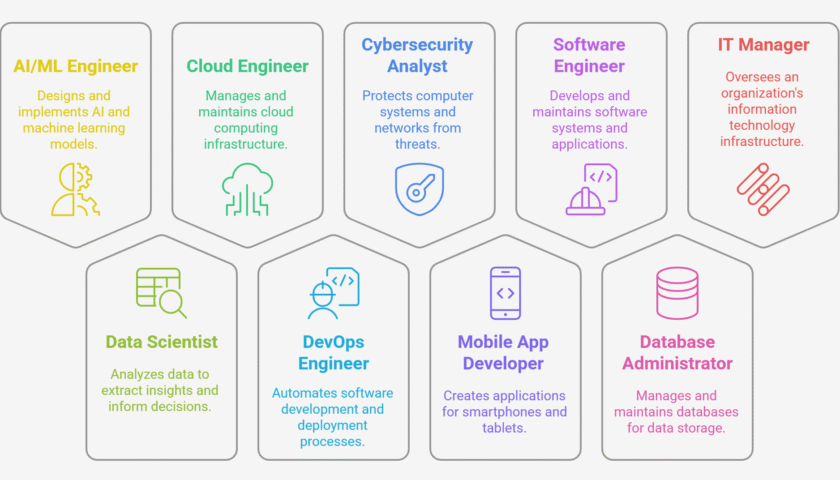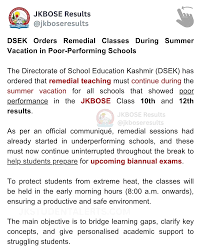Navigating the Modern Maze: Mastering the Soft Skills Employers Crave
By: Javid Amin
In today’s dynamic professional landscape, technical prowess alone isn’t enough to unlock the door to your dream job. Hiring managers have shifted their focus, prioritizing individuals who possess a nuanced tapestry of interpersonal skills—the coveted “soft skills” that empower individuals to excel in collaborative environments and navigate complex challenges.
Understanding and mastering these soft skills is no longer a mere bonus; it’s becoming a crucial differentiator in a competitive job market. So, what are the key soft skills hiring managers crave, and how can you cultivate them to stand out from the crowd?
1. Communication: The Bridge to Understanding:
Clear, concise, and impactful communication is the bedrock of effective interaction. Hiring managers seek candidates who can articulate their thoughts persuasively, listen actively with empathy, and tailor their communication to diverse audiences.
Develop your communication skills by:
- Embracing active listening: Pay close attention to verbal and non-verbal cues, ask clarifying questions, and demonstrate genuine interest in the speaker’s perspective.
- Seeking feedback: Constructive criticism can illuminate areas for improvement. Ask colleagues and mentors to evaluate your communication style and provide actionable feedback.
- Refining your writing and speaking: Join public speaking clubs, participate in professional workshops, and actively seek opportunities to hone your written expression.
2. Collaboration: Weaving the Tapestry of Teamwork:
In today’s interconnected world, success often hinges on collaboration. Employers value candidates who can seamlessly integrate into teams, embrace diverse perspectives, and work towards collective goals.
Strengthen your collaboration skills by:
- Seeking opportunities for teamwork: Volunteer for team-based projects, actively participate in brainstorming sessions, and offer support to colleagues.
- Celebrating diversity of thought: Be open to different viewpoints, respectfully challenge assumptions, and strive for consensus through constructive dialogue.
- Building strong relationships: Invest time in fostering trust and rapport with your colleagues.
3. Adaptability: Embracing the Dance of Change:
The modern workplace is a dynamic ecosystem, constantly evolving and demanding agility. Employers seek individuals who can adapt to new situations, embrace technological advancements, and thrive in uncertain environments.
Cultivate adaptability by:
- Stepping out of your comfort zone: Challenge yourself with new tasks and projects, embrace unfamiliar situations, and welcome opportunities to learn and grow.
- Developing a growth mindset: View challenges as opportunities to learn and refine your skills. Approach change with a positive attitude and a willingness to experiment.
- Staying informed and nimble: Stay updated on industry trends, emerging technologies, and evolving business landscapes.
4. Problem-Solving and Critical Thinking: Unraveling the Knots of Complexity:
The ability to analyze situations logically, dissect problems critically, and propose effective solutions is a highly sought-after skill. Employers value candidates who can think outside the box, identify root causes, and develop innovative solutions.
Sharpen your problem-solving skills by:
- Engaging in diverse problem-solving scenarios: Volunteer for challenging assignments that require analytical thinking and creative solutions.
- Practicing logical reasoning: Hone your ability to identify patterns, draw conclusions, and evaluate evidence objectively.
- Embracing continuous learning: Pursue courses, workshops, and resources that enhance your analytical and critical thinking skills.
5. Leadership and Influence: Inspiring the Orchestra of Success:
Strong leadership skills are not merely about titles; they are about inspiring and empowering others to achieve collective goals. Employers seek individuals who can motivate, guide, and foster a culture of collaboration within teams.
Develop your leadership skills by:
- Seeking leadership opportunities: Take on leadership roles in student organizations, volunteer initiatives, or workplace projects.
- Mentoring and guiding others: Share your knowledge and experience with colleagues, offer constructive feedback, and celebrate their successes.
- Honing your influencing skills: Build strong relationships, network effectively, and practice persuasive communication techniques.
Remember, mastering these soft skills is a continuous journey. Seek opportunities to apply them in your daily life, from academic projects to volunteer work. Embrace constructive feedback, track your progress, and celebrate your victories. By investing in your soft skill development, you equip yourself not only for career success but also for personal growth and fulfilling relationships.






